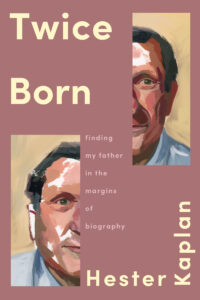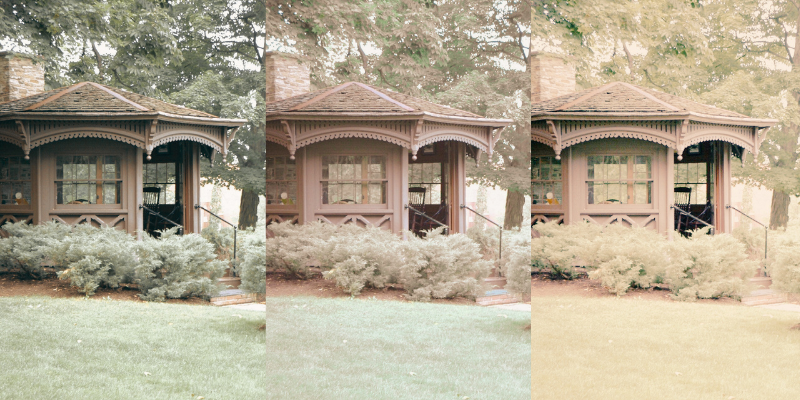On my first night at Quarry Farm in Elmira, New York where Mark Twain and his family spent their summers beginning in 1871, I watched lighting splitting the sky above the Chemung River Valley visible through the window at the far end of the room where I was to sleep, where Twain himself might have slept, too.
Article continues after advertisement
I had made the long drive from Rhode Island that morning through the dense September humidity to this house where I would be living alone for two weeks as a Quarry Farm Fellow to work on my book, a memoir that was in large part a biography of my late father, Justin Kaplan, an acclaimed biographer of Mark Twain. My father had been a deeply private and elusive man. He was orphaned as a boy, his past unspoken, and my book was about my search to know him, as a father and as a writer, in a way I was unable to when he was alive.
As I read his biography of Twain for the first time, I often found myself returning to a persistent question and mystery: How had my father forged the profound connection to Twain that allowed him to write such an intimate, alive, and insightful portrait? Could I forge the same kind of connection with him as I wrote the story of our life together? To be now in the house of the man who for so many years had held my father’s attention seemed like a way to discover something about his creative process, and in turn, find my way to writing with equal intimacy and insight.
As he contemplated how he was going to tell the story of another man’s life, and as I contemplated the same, I began to know the writer, my father.
I’d been warned that Quarry Farm was easy to miss on purpose to deter Twain enthusiasts, and I’d driven past it at first. When I pulled into the driveway, the considerable house made its immediate, prideful point, then quickly gave way to a softer impression of invitation—late summer flower beds still in bloom, lattice work, and an elegant and wide stone veranda that looked down grandly over the purple shaded valley towards the city of Elmira below.
After a brief tour with the caretaker (who I would not see again during my stay), I explored. Here was the austere dining room, the parlor, the toilet that offered up a Gregorian chant when flushed, the wide staircase up to the bedrooms and the room where I would work, an enticing sleeping porch. I often had dreams about finding hidden rooms in my own house, of opening doors to new space and possibility, and here was a house of my dreams—and, I hoped, a place to dream myself into other lives, Twain’s and my father’s.
That evening, I sat at Twain’s table in the kitchen with the pre-made dinner I’d picked up from a supermarket in town. Elmira had once been prosperous, but it wasn’t anymore, and where Twain’s in-laws’ mansion had stood, there was now a sleepy shopping plaza that bore the name of Twain’s dead infant son as well as his father-in-law. I thought of ancient sites discovered under parking lots and construction zones, pasts covered over, and I wondered, if I put my cheek to the asphalt, could I feel the life below?
And, if I looked as Twain must have yearningly to where his famous octagonal study once sat at the top of the hill a hundred yards behind the house, could I detect the current of his imagination flowing towards Huck Finn’s unfinished story? There must have been a hundred nights in Elmira as humid as this one, the sky going purple, when Twain had to pull himself back to his life in this chair, his family clamoring for him to join them on the veranda. I felt a shadow sit next to me then, not of Twain, but of my father reminding me that he was my subject, and urging me to recall a hundred humid nights like this when I was young and I’d looked over at him and saw that he was aching to be somewhere else.
When he had written wistfully, buoyantly even, that Twain had worked in “solitary, untouchable splendor” in his octagonal study at Quarry Farm, he must have known that same draw to return to his work in his own study. On the first floor of the house we’d lived in, his study had been a room of another kind of dream for me, off-limits and impenetrable. But that study where my father had written books for fifty years no longer existed, long ago transformed into a sleek, bookless media room by the house’s new owners. And Twain’s study was no longer up the hill; it had been moved down to the campus of Elmira College almost seventy-five years earlier.
I was impatient with myself that evening for expecting magic or revelation or an instant affinity with these slippery men and their inner lives when as a writer I knew much better than that; the only meaning we find in the jumble of experience and longing is the one we give it.
That first night, I woke to the intense storm that had taken all day to arrive. Twain had so liked the sound of rain drumming that he’d installed some tin roofing over his house in Hartford, and now I listened, as he must have in this very same room, to the downpour playing on the slates. I recalled my father swimming in Cape Cod Bay one afternoon when without warning the sky burst above him and all he could do was show me how to wait it out and regard the rain and the lightning with awe. If you are open to it, there is a kind of melancholy thrill in the moment of pure awareness that only weather’s indifference can bring about—I felt it that night, maybe Twain and my father felt it, too—a hint of a new reality that follows the writer to the page the next day.
And then through the rain, I heard a baby wailing, not too far away, just outside or maybe downstairs. Had I misunderstood that I’d be alone here? When I forced myself to sit up, I saw it was a cat I’d been hearing, its cartoonishly soaked silhouette in the open window screaming miserably and begging me to raise the screen and let it in. How did it know to find me, the only beating heart in this house? “I simply cannot resist a cat,” Twain had said, and there had been many of them at Quarry Farm when he’d lived here, some curled together on one of the veranda’s rocking chairs, others trailing him up the hill to sleep in his octagonal study while he worked. I could see him now crossing the bedroom to press the wet animal against his dry night shirt. Maybe this cat was a howling descendant of one he’d rescued in another storm, salvation imprinted and passed down the feline line. When I didn’t let the cat in, it soon disappeared.
In the morning, when I went to the window where the cat had been, I saw that there was no ledge or roof or tree for it to have jumped from to land on the very narrow sill. The animal was nowhere to be seen all day, not in the long, wet valley or among the trees which were bent and glittery in the sunlight after their wild night out.
The next day, I went to visit Twain’s octagonal study on the campus of Elmira College. The place was billed as one of the country’s “most important literary landmarks,” a designation so undefinable it would be impossible to dispute. It was a beautifully balanced and scaled structure that took industry seriously but had room for daydreaming. Inside, the furniture had been arranged to give the impression that Twain had just stepped out for a minute, and if I went in, I’d find the seat still warm, the pen set down on the paper, his self-doubt that never went away masquerading as a spider in its web in the high corner.
I wanted to let time, light, and invention float around me, let the past recede and the present rise up as my father had done.
That evening, as I sat in a rocking chair on the veranda, I read Twain’s description of a summer storm in Huck Finn—the sky’s blue-black dark, the thrashing rain, the trees “tossing their arms as if they was just wild,” the “rumbling, grumbling, tumbling” thunder. I’d seen that storm. And then I read what my father had written about the summer of 1883 when Twain, intoxicated by his enormous creative output, had finished the novel, how the six windows of his study had offered him commanding views of storms that swept down the valley and lightning that branched over distant hills, translating, transforming and stoking memory and inspiration. That summer as Twain worked in a “dazzling darkness of his own,” he moved between what lay behind him—the material of his past—and everything that lay before him with this new book.
As I read, I finally stepped inside my father’s study in our house to be with him all those years ago as he wrote about Twain exhaling the vapors of one life into another on the page. A cat sat next to his typewriter. His window was open to let in the wind that was just picking up. He thought of his dead parents and how they would never know him as an adult. He thought of his own children and his fear that they too might never know him. He could not imagine then that I would write in order to find him. Like Twain, he had experienced violent storms and bright clearings in his life, and knew the possibility that lay in the book he was working on, his first biography, the one that could establish his career, and what he needed to return to. As he contemplated how he was going to tell the story of another man’s life, and as I contemplated the same, I began to know the writer, my father, in the still center.
As the undulant hills beyond the valley turned blue in front of me, a cat sauntered onto the veranda and wound its tail around my ankles. There was no way to know if it was the same one from the night of the storm. It was patient, and when I got up, the cat jumped onto my chair. It hadn’t come to be with me or scold me for not letting it in out of the rain, but to reclaim its place.
It wasn’t until my last night at Quarry Farm that I discovered I had mistakenly been unlocking the veranda door all along before I went to bed, leaving myself and the house open. Maybe this was my form of an invitation to those people whose creative lives I wanted to welcome into mine, my father included. I wanted to let time, light, and invention float around me, let the past recede and the present rise up as my father had done, let the dream become solid so I could bring them alive, these ghosts of my own making. That night after the storm, in an instant of shared understanding that this connection with each other arrives through the act of imagining, we hesitated together at the top of the stairs, my father and I, turned and watched the dark move up towards the house, and prepared for the work to begin again tomorrow.
__________________________________

Twice Born: Finding My Father In the Margins of Biography by Hester Kaplan is available from Catapult.
